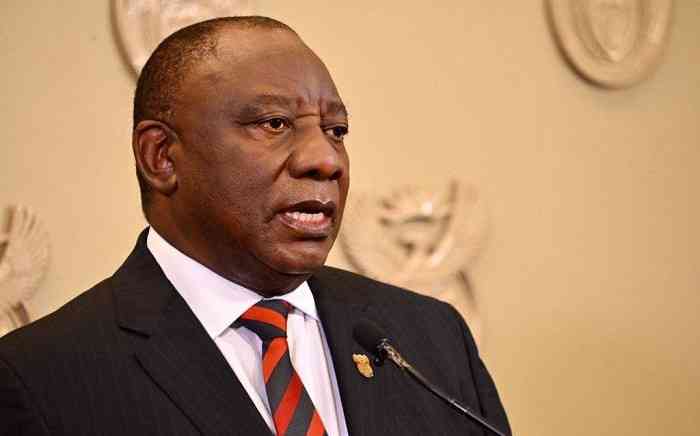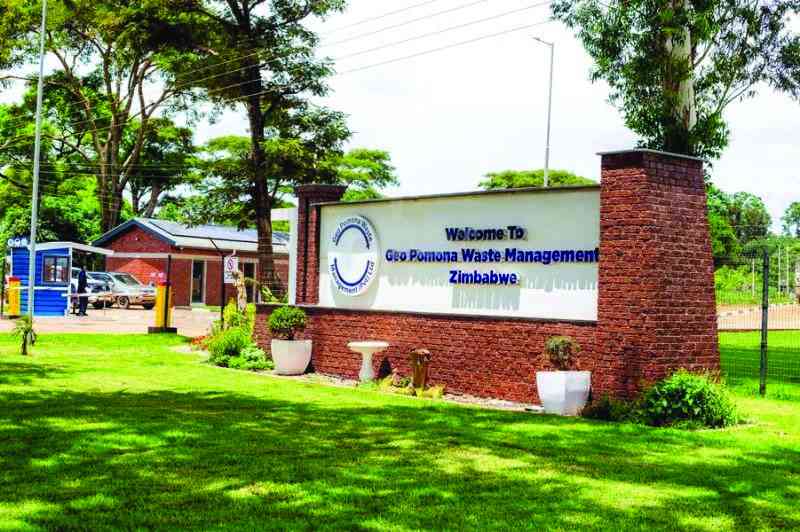
REGIONAL and international critiques of election rigging have undermined Zanu PF amid calls for a transitional authority to be set up.
Regional leaders, like the four million Zimbabweans in exile, voted with their feet when invited to attend Emmerson Mnangagwa's inauguration for his second presidential term on September 4. Of the 15 members in the Southern African Development Community (Sadc), only three leaders turned up: South Africa's Cyril Ramaphosa, Mozambique's Filipe Nyusi and Congo-Kinshasa's Félix Tshisekedi. That reflected widespread doubts about the credibility of the elections. Many experts within the region agreed with the assessment of Stephen Chan, a former Commonwealth election observer and eminent political scientist, that these were Zimbabwe's 'worst ever elections.'
Ramaphosa arrived on the evening of September 3 for discreet discussions about how to resolve the country's deepening political and economic crisis. Two former heads of State, Mozambique's Joachim Chissano and Zambia's Edgar Lungu, turned up on the following day. Chissano is mediating in negotiations to restructure Zimbabwe's debt and Lungu once jailed Zambia's President Haikande Hichelema, whom the ruling party has been excoriating on social media. Former Vice-Presidents under Robert Mugabe, Joice Mujuru and Phelekezela Mphoko, attended, as did former first lady Grace Mugabe and her family.
The thin African attendance partly reflected the unprecedented critique of Zimbabwe's elections by the Sadc and African Union observer teams. Sadc concluded elections fell short of regional and international standards based on a new and more demanding matrix of governance indicators. Initially, the AU team flagged shortcomings but is yet to pronounce on the vote's legitimacy.
Some activists and opposition politicians are calling on Ramaphosa to lead negotiations for a transitional authority in Zimbabwe, which would include the ruling party, the opposition, and independent professionals, to enact political and constitutional reforms.
It would parallel the role of South Africa's former President Thabo Mbeki in midwifing a government of national unity after Zimbabwe's extremely violent 2008 elections.
Last month's voting limped out of the starting blocks. More than 75% of polling stations in Harare did not open on time, and there were significant delays in Bulawayo and many parts of Manicaland. These opposition strongholds, along with Matabeleland North, were the only provinces in the 2018 election where Nelson Chamisa of the opposition Citizens Coalition for Change (CCC) won more votes than Mnangagwa.
The Zimbabwe Electoral Commission (ZEC) claims that polling stations were unable to open on time because local authority ballot papers were printed late because of all of the court challenges prior to the election. Yet few of the legal cases related to the local authority candidates of the wards that opened late. Many potential voters said they were worried about security and left their polling stations after night fell.
- Mavhunga puts DeMbare into Chibuku quarterfinals
- Bulls to charge into Zimbabwe gold stocks
- Ndiraya concerned as goals dry up
- Letters: How solar power is transforming African farms
Keep Reading
Voting was extended into August 24, via a last-minute presidential decree, in 40 wards. Many polling agents in Mashonaland provinces reported the ballot books delivered by Zec did not have sequential serial numbers, raising questions about the integrity of the ballot.
Candidates' nomination was chaotic and held up by spurious legal challenges, such as a bid to exclude CCC candidates in all 12 of Bulawayo's constituencies, and the successful barring of independent presidential candidate Saviour Kasukuwere, the former Zanu PF commissar and a linchpin of the G40 campaign against Mnangagwa's rise to power.
Citizens were further discouraged from voting when they arrived at their expected polling station to find that their names were not on the voters' roll.
But the greatest discouragement to voters was orchestrated by the Zanu PF supporting activist group Forever Associates Zimbabwe (FAZ), which set up branded tables outside polling stations to conduct 'exit polls', where they registered the names and ID numbers of people before and after voting. FAZ is said to have brought in 20 'volunteers' to each constituency to collect intelligence, infiltrate opposition supporting communities and recruit for Zanu PF. Such tactics were reported across the country by activists to the Zimbabwe Human Rights NGO Forum.
FAZ ran the ruling party's primary elections, then conducted door-to-door campaigns, using thinly-veiled threats of violence to remind voters that they must vote 'correctly' or face the consequences. The group's origins are shadowy, but it appears to be closely linked to the military and security services in particular to retired Brigadier Walter Tapfumaneyi.
FAZ was also expert in what Zimbabweans call 'shaking the matchbox' – threatening violence symbolised by the burning down of homes of opposition supporters in previous elections. The not so discreet backing for FAZ by a section of the security services was a reminder, especially in rural areas, of the risks of voting against Zanu PF. Elsewhere, Zanu PF and its proxies used political violence more selectively. But they still managed to target some key CCC candidates and party agents.
The presidential results were announced at 11.30pm on August 26 as thousands of police patrolled the capital. CCC agents who attended the verification said the constituency totals were rushed through with no room for objection or verification. The party ultimately refused to sign the final result, claiming that there were too many irregularities and unanswered questions.
So far, ZEC has refused to release a breakdown of the presidential results, constituency by constituency, saying only that Mnangagwa won 52.6% of the vote, meaning there was no need for a runoff, to Chamisa's 44% and the rest was split between the remaining eight candidates. Some Sadc officials may call for Zec to release the disaggregated results for the presidential and parliamentary votes.
On the night of the election, security forces raided the control room for the Election Resource Centre and the Zimbabwe Election Support Network, arresting 39 staff running a parallel voter tabulation, confiscating their laptops and phones, and detaining them without legal representation for over 12 hours.
Freeman Chari, a researcher who claims he has collated results from over 11 000 polling stations, says his results show 'that Chamisa has crossed the number he was given by Zec'. The CCC has also been conducting an independent vote-counting exercise and party spokesperson Promise Mkwananzi claims they have evidence that Chamisa won the election, but unless it is presented in court, it is unclear how much their tabulation differs from Zec's.
The parliamentary results have also been released and Zanu PF dominates, as expected, with 136 out of 210 contested seats, but they failed to win the two-thirds majority required for constitutional amendments. That reinforces the trend from last election that Zanu PF is much more popular than its presidential candidate Mnangagwa, widely accused of profiting as the country's economy founders.
Surprises
The CCC won 73 seats. There were some surprising results – independent MP, Temba Mliswa, a strong parliamentarian and formerly Zanu PF chairperson for Mashonaland West, was defeated in his Norton constituency by none other than Richard Tsvangirai, son of the founder of the MDC, the late Morgan Tsvangirai.
Minister of Finance Mthuli Ncube, who expected to walk into a parliamentary seat in the newly created Cowdray Park constituency in Bulawayo, having invested significant state resources in refurbishing the roads and providing amenities to residents, was defeated. In a fit of pique, he turned off the free internet that he had made available for residents.
Mnangagwa's runner and election fundraiser, Scott Sakupwanya, accused of laundering money in Al Jazeera's Gold Mafia documentary released earlier this year, was defeated in Harare's Mabvuku Tafara constituency by CCC's Munyaradzi Kufahakutizwi.
There is a strong cohort of CCC MPs, including the former spokesperson, Fadzayi Mahere, who refused the US$40 000 payment to MPs from the government last year along with Rusty Markham, the young deputy spokesperson, Gift Ostallos Siziba, and feminist activist, Maureen Kademaunga.
The observer mission reports have been more critical than in previous elections. The Sadc mission noted that 'some aspects of the harmonised elections fell short of the requirements' prompting a backlash from Zanu PF and the government. State media accused the head of mission, former Zambian vice-president Nevers Mumba, of being a western proxy, a convicted criminal and 'mentally ill'. Mumba said that Sadc's multi-authored report merely pointed out where Zec had failed according to Zimbabwe's own constitution and electoral act or Sadc's principles, to which Zimbabwe is a signatory.
The EU Election Observation Mission, invited back to observe the polls after their first mission in the post-coup 2018 election, also found fault. In its preliminary report, chief observer Fabio Massimo Castaldo highlighted the 'progressively tense atmosphere' and how 'fundamental freedoms [were] increasingly curtailed'.
A post-election statement by the EU High Representative, Josep Borrell, was less strongly worded than the EOM's release, but also critical of the election. We hear that the EU ambassador to Harare, Jobst von Kirchmann, had urged Borrell to water down his comments for fear of severing the remaining lines of communication between Harare and its western interlocutors trying to continue negotiations on the arrears clearance programme.







